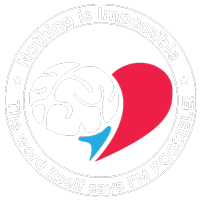Trauma, Abuse and PTSD
There are two kinds of trauma, impactful and repetitive.
Impactful would be the kind of a one-time highly distressing and often physical event that sends the body and mind into shock instantly, like in the case of a car crash, or a violent attack. Repetitive trauma is apparently less distressful and can be non-physical but the repetition of the event is as impactful on the mind, creating the same after-effects, including post-traumatic stress disorder.
The effects can include in both cases flash-backs, nightmares, obsessive compulsive disorder, extreme levels of anxiety, low self-esteem, emotional shut-down with possible consequent intimacy issues, sleep issues, depression, nervous tics, irritability and maniac disorders (having the feeling of being followed, tendency to expect something bad to happen).
Because trauma stems from the perception of being unable to cope with the distressful situation, children are more easily traumatised than adults however trauma can happen any time, as it depends on the subjective perception of the event.
It has been shown in animals that the body and mind naturally know how to process trauma in order to overcome it, however because of the advanced development of the human brain, usually the processing of trauma is interfered with by our more advanced part of the mind, the conscious mind, that although it can rationalise what happened, it is unable to do anything with the trauma itself, simply because it is not that part of the mind that has been affected by it. Thinking that rationalising is all it needs to do to get over the trauma, because it is the only thing that it can do, it does its best to block the signs of trauma sent by the unconscious mind who’s desperately trying to get things processed and keeps sending these glitch-like signals that with time get stronger and stronger or even more numerous.
This disalignment between the two parts of the mind, enhances the glitch-like symptoms as described above, which are difficult to resolve with just traditional talk therapies. Talking out a problem, although it gives temporary relief does not address the actual issue and its inner workings. Trauma can only be resolved by working with the part of the mind that was affected by it, because it’s the only part of the mind that can process it and resolve it, and with hypnotherapy we can easily do that, so a good, healthy mental balance is restored once again, and all symptoms caused by the trauma will cease.
Remember: “Nothing is Impossible, the word itself says I’M POSSIBLE!”


